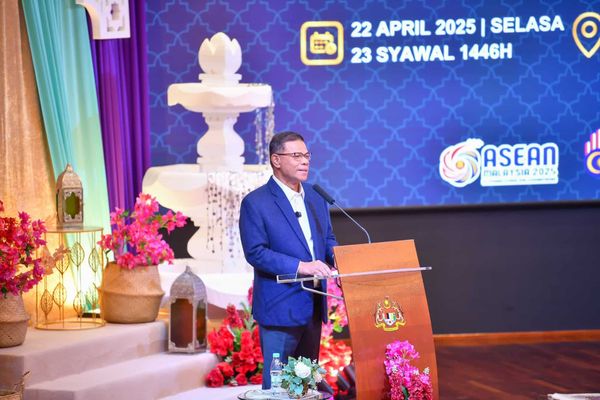PUTRAJAYA, April 22 — The Visa Liberalisation Plan (PLV) for Chinese visitors has been extended for another five years, as the initiative has shown immediate positive impact on the country’s economy, said Home Minister Datuk Seri Saifuddin Nasution Ismail.
He said the decision to extend the PLV was part of a series of memoranda of understanding and documents signed during China President Xi Jinping’s recent state visit to Malaysia, covering various sectors of cooperation.
Among them was a joint visa exemption agreement for holders of public affairs and ordinary passports, signed by Saifuddin Nasution and China Foreign Minister Wang Yi.
“We will extend it for the next five years, and, after that, there will be an option to renew it for another five years — allowing Chinese nationals to stay in our country for up to 90 days as tourists.
“China will reciprocate with the same arrangement for us,” he told reporters after the Home Ministry’s monthly assembly here today.
The PLV was designed to boost national income and will be implemented by enhancing existing immigration facilities available to travellers from various regions, including Europe, Southeast Asia, the Middle East, and West Asia.
China’s Foreign Ministry spokesperson Lin Jian said the joint visa exemption deal will deepen exchanges and cooperation to advance the China-Malaysia community with a shared future.
Saifuddin Nasution said the arrangement has borne fruit, with tourist arrivals from China on the rise. According to data from the Tourism, Arts and Culture Ministry, Chinese tourists spend an average of RM7,000 during their stay in Malaysia.
“When we look at arrival numbers, it’s clear this is a formula with immediate economic benefits and a significant impact,” he said.
As of April, Malaysia has logged close to 900,000 tourist arrivals from China, Saifuddin Nasution noted, adding that more than four million Chinese tourists visited the country last year.
He stressed that tourism is an important component of the country’s economic contributors as it has an immediate impact, compared to investments.
In another development, Saifuddin Nasution also launched the Investigation and Complaints Management System (SPEAKS), which aims to make it easier for the public to lodge complaints against members of the Royal Malaysia Police.
“Anyone wishing to file a complaint against police enforcement personnel can now do so through the SPEAKS platform, provided they include complete details such as the time, location, individuals involved, and the nature of the incident,” he said.
He added that SPEAKS facilitates the public in submitting complaints to the Independent Police Conduct Commission, enabling prompt and appropriate follow-up actions to be taken.
Regarding MyDigital ID, Saifuddin Nasution, who also chairs the Cabinet Committee on MyDigital ID, said the ministry will table amendments to the National Registration Act 1959 to support the legal framework for its use.
“Our task is to present these amendments in Parliament to ensure the application, use, and transactions involving MyDigital ID are considered legally valid,” he said.
He added that the National Registration Department has been appointed lead agency for MyDigital ID pre-registrations to boost enrolment nationwide.
MyDigital ID, introduced in 2016, is a government initiative designed to provide secure and legally recognised digital identity verification for online users.
— Bernama




